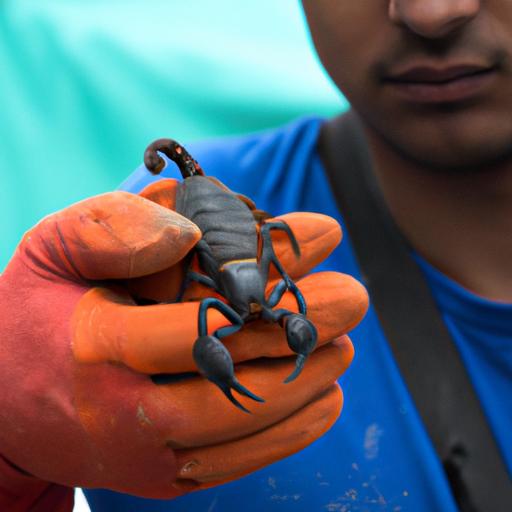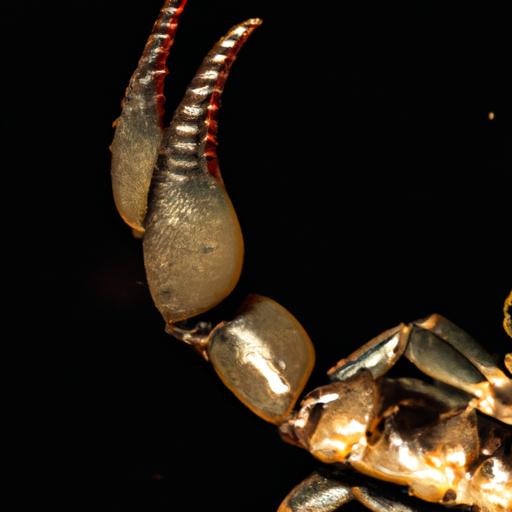Scorpions are fascinating creatures that have been around for over 400 million years. They are arachnids, meaning they are related to spiders, ticks, and mites. Scorpions are known for their curved tails, venomous stingers, and nocturnal habits. There are over 1,700 species of scorpions, and they can be found on every continent except Antarctica.
Understanding scorpions is essential, especially if you live in an area where they are prevalent. Scorpions can be a significant threat to humans, and their stings can be extremely painful and even deadly. However, not all scorpions are dangerous, and some species are even beneficial to the environment.
In this article, we will explore the different types of scorpions, their behavior, and the best ways to prevent and control infestations. Whether you are an animal lover or looking to protect yourself and your family from scorpion stings, this article will provide you with the information you need to stay safe and informed.
Types of Scorpions

Scorpions come in all shapes and sizes, and each species has its unique characteristics and behavior patterns. Here are some of the most common types of scorpions found around the world:
Bark Scorpions
Bark scorpions are one of the most venomous scorpion species in the world and are commonly found in the southwestern United States and Mexico. They are light brown or yellow in color and have slender bodies, making them difficult to spot. Bark scorpions are nocturnal and like to hide in dark, damp places like under rocks, logs, and debris.
Emperor Scorpions
Emperor scorpions are a popular species in the pet trade and are native to Africa. They are large, black scorpions that can grow up to eight inches long. Emperor scorpions have thick claws and are not very aggressive. They are nocturnal and prefer to live in damp areas like rainforests and savannas.
Deathstalker Scorpions
Deathstalker scorpions are one of the most dangerous scorpion species in the world and can be found in the Middle East and North Africa. They are yellow in color and have long, slender tails with a powerful venomous stinger. Deathstalker scorpions are aggressive and can be lethal to humans.
Desert Hairy Scorpions
Desert hairy scorpions are a common species found in the southwestern United States and Mexico. They are tan or brown in color and have long, hairy legs and bodies. Desert hairy scorpions are nocturnal and prefer to live in rocky areas and deserts.
Understanding the different types of scorpions and where they are found is essential to identify potential risks and take necessary precautions. Knowing their physical characteristics and behaviors can also help in the prevention and control of infestations.
Scorpion Stings

Scorpion stings can be a serious health risk to humans, particularly children, the elderly, and those with weakened immune systems. The effects of a scorpion sting can range from mild to severe, depending on the species of scorpion and the individual’s reaction to the venom.
Effects of Scorpion Stings on Humans
The immediate effects of a scorpion sting can include pain, swelling, and redness at the sting site. Other symptoms may include numbness, tingling, muscle twitching, and difficulty breathing. In severe cases, scorpion stings can cause convulsions, respiratory failure, and even death.
Severity of Stings and When to Seek Medical Attention
The severity of a scorpion sting depends on several factors, including the species of scorpion, the amount of venom injected, and the individual’s age and health. It is essential to seek medical attention immediately if you or someone you know has been stung by a scorpion, especially if the sting occurred in a vulnerable area, such as the head or neck.
Common Misconceptions About Scorpion Stings
There are many misconceptions about scorpion stings, which can lead to confusion and misinformation. One common myth is that all scorpions are deadly, which is not true. While some species of scorpions have potent venom, many scorpions are harmless to humans.
Another misconception is that scorpion stings are always fatal. While scorpion stings can be dangerous, deaths from scorpion stings are relatively rare. With proper medical attention, most people recover from scorpion stings without any long-term complications.
Prevention and Control
Scorpion infestations can be both dangerous and frustrating. Fortunately, there are several ways to prevent and control infestations. Here are some tips to help keep scorpions away from your home:
Tips on how to prevent scorpion infestations at home
- Seal all cracks and crevices in your home’s walls, doors, and windows with weather stripping and caulking.
- Keep your home clean and free of clutter. Scorpions like to hide in dark, cluttered spaces.
- Remove any piles of rocks, firewood, or debris from your yard.
- Keep your outdoor lights off at night. Scorpions are attracted to light.
- Use screens on all windows and doors to keep scorpions out.
Proper handling and removal of scorpions
If you do find a scorpion in your home, it is important to handle and remove it properly to avoid being stung. Here are some tips:
- Wear gloves and long-sleeved clothing to protect yourself from stings.
- Use a long-handled tool, such as tongs or a broom, to pick up the scorpion.
- Place the scorpion in a container and release it far away from your home.
Use of pesticides and natural remedies
If you have a scorpion infestation, you may need to use pesticides to control the population. However, it is important to use these chemicals safely and correctly. Here are some tips:
- Hire a professional pest control company to identify and treat the infestation.
- Use pesticides that are labeled for scorpion control and follow the instructions carefully.
- Consider using natural remedies, such as diatomaceous earth or essential oils, to repel scorpions.
FAQ
Scorpions are mysterious creatures that can cause fear and concern for those who encounter them. To help you better understand scorpions and their behavior, let’s explore some frequently asked questions.
Common questions about scorpions and their behavior
- What do scorpions eat? Scorpions are carnivores and feed on insects, spiders, and other small animals.
- Do scorpions glow in the dark? Yes, some scorpions have a special protein that causes them to glow under ultraviolet light. This adaptation helps them attract prey and avoid predators.
- How long do scorpions live? Scorpions can live anywhere from 2 to 25 years, depending on the species and environmental conditions.
- Are scorpions aggressive? Scorpions are generally not aggressive and will only sting if they feel threatened. However, some species are more aggressive than others and should be avoided.
How to identify scorpion species
Identifying scorpion species can be challenging, as many species have similar physical characteristics. However, here are some general traits to look for:
- Size and color: Scorpions come in a range of sizes and colors, from the small and pale to the large and dark.
- Tail shape and stinger: Scorpions have distinctive tails that are often curved, and their stingers are located at the end of their tails.
- Pincers: Scorpions have two pincers, which they use to grab and hold onto prey.
How to protect yourself from scorpion stings
Preventing scorpion stings is crucial, especially if you live in an area where scorpions are prevalent. Here are some tips to protect yourself:
- Wear protective clothing: When hiking or working outdoors, wear long sleeves, pants, and boots to protect your skin from scorpion stings.
- Inspect your surroundings: Before sitting or reaching into dark places, such as a pile of rocks or a woodpile, inspect the area for scorpions.
- Seal your home: Seal cracks and gaps in your home’s foundation and doors and windows to prevent scorpions from entering.
- Use caution: If you encounter a scorpion, move away slowly and avoid making sudden movements that could startle it.
By following these tips and staying informed about scorpions, you can protect yourself and your family from the potential dangers of scorpion stings.
Conclusion
In conclusion, scorpions are fascinating creatures that require a deeper understanding. While some species can be dangerous and pose a threat to humans, others are harmless and even beneficial to the environment. By following the tips outlined in this article, you can protect yourself from scorpion stings and prevent infestations in your home.
Remember to be cautious when handling scorpions, and always seek medical attention if you are stung. By educating yourself about scorpions and their behavior, you can enjoy the outdoors and appreciate these mysterious creatures without putting yourself or your loved ones in danger.
At Critter Kingdom, we strive to provide valuable information and resources for animal lovers everywhere. We hope this article has been informative and helpful. If you have any questions or comments, please feel free to reach out to us. Thank you for reading!

